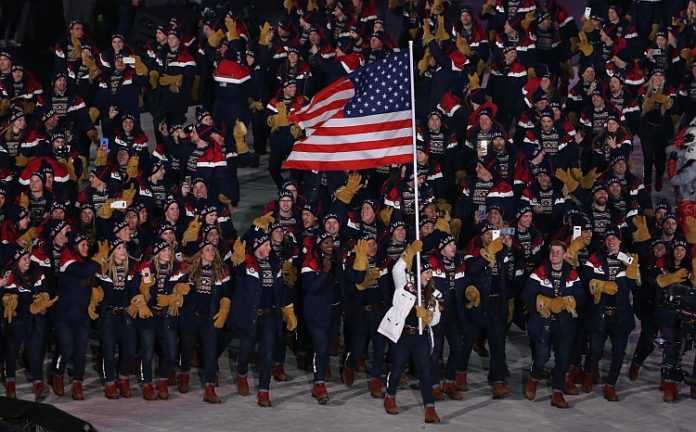/It’s a pleasure to present this guest column by one of the most knowledgeable observers of the Olympic Movement, Britain’s David Miller. For more than 50 years, the former English footballer has covered the Olympic Games and the sports within it, including 15 years as the Chief Sports Correspondent of The Times of London, with stints at the Daily Express and the Daily Telegraph. Author of books on athletics, football and the Olympics, he was Official Historian of the IOC from 1997-2018. His opinions are, of course, his own alone./
With the International Olympic Committee inexorably negotiated into a partial concession – acceptance of athletes’ protest by “expression” – it must be hoped that Tokyo’s reluctantly re-scheduled Olympic Games do not become a circus cavalcade of demonstrations, whether vocal, physical, banners or flags, ominously likely to be led by rampant elements in USA.
Admittedly, there is little political or social innocence throughout the world today, even beyond the new, four-century headline-hugging “introspection” now being promoted by campaigners in America. Yet there are twenty or more nations, from China, Hong Kong and Russia, to much of Africa and South and Central America where thousands of lives are daily in jeopardy. In Britain, the fifty-year-old “Windrush” scandal – the immigrant West Indies boat bringing post-war Caribbeans to bolster UK labour recovery, many of whom despite decades of contribution, now deemed illegal residents.
However, the IOC is remaining loyal to the ancient sacrosanct Greek idealism of the Olympic Games: an integrated festival of peaceful sport, at which, in the modern context, ninety percent of the 10,000 participants have no prospect of a medal but the humanitarian ambition of integrating with all other creeds, races and philosophies. The Games, distinct from all other sport, must never be allowed to become an ad-hoc social courtroom.
And tell me: do marriage couples ever contemplate momentarily corrupting their wedding ceremony to confront family and guests with raised glove fists, banners and slogans? The Olympic Games are likewise a celebration of joyous unity: cause for legitimate domestic or international protest at the Games should be conducted in conventional manner, scheduled conferences within the appointed city, yet in no manner directly associated with the sporting arena, where all are mutually respectful.
Most Olympians should recognise that, while talent has lifted them to an elite status, their passage has usually been dependent on extensive taxpayer public funding: a precious bonus unavailable to, say, the average worker daily grinding by public transport to anonymous, repetitive yet responsible duty. Olympic athletes are simultaneously admired yet beneficiaries.
In Tokyo, maybe some women hammer-throwers will have pink hair in solidarity with gender equality or gay rights, or springboard divers will take the knee on the platform – if they all feel they must. Yet will the IOC accept “silent” expression?
Thomas Bach, ninth President of the IOC, Olympic fencing champion from 1976, is committed to upholding the ethic of Rule 50, excluding tangible protests on a medal podium or the competition arena. This principle has the approval of a majority of the Athletes Commission. Without this steadfast ethic, the Olympic Games, unique social festival, descends to be no more than bear-baiting.
I was a member of Britain’s football training squad for Melbourne ’56, though unselected for the fifteen to travel. Three or four of us in the squad were genuine amateurs – as then still vainly required by the IOC when many in track and field or football were clandestine professionals within “amateur” clubs. A known “professional amateur” was preferred to me for Melbourne. I didn’t protest.
Comments are welcome here and or direct to David Miller here.
















